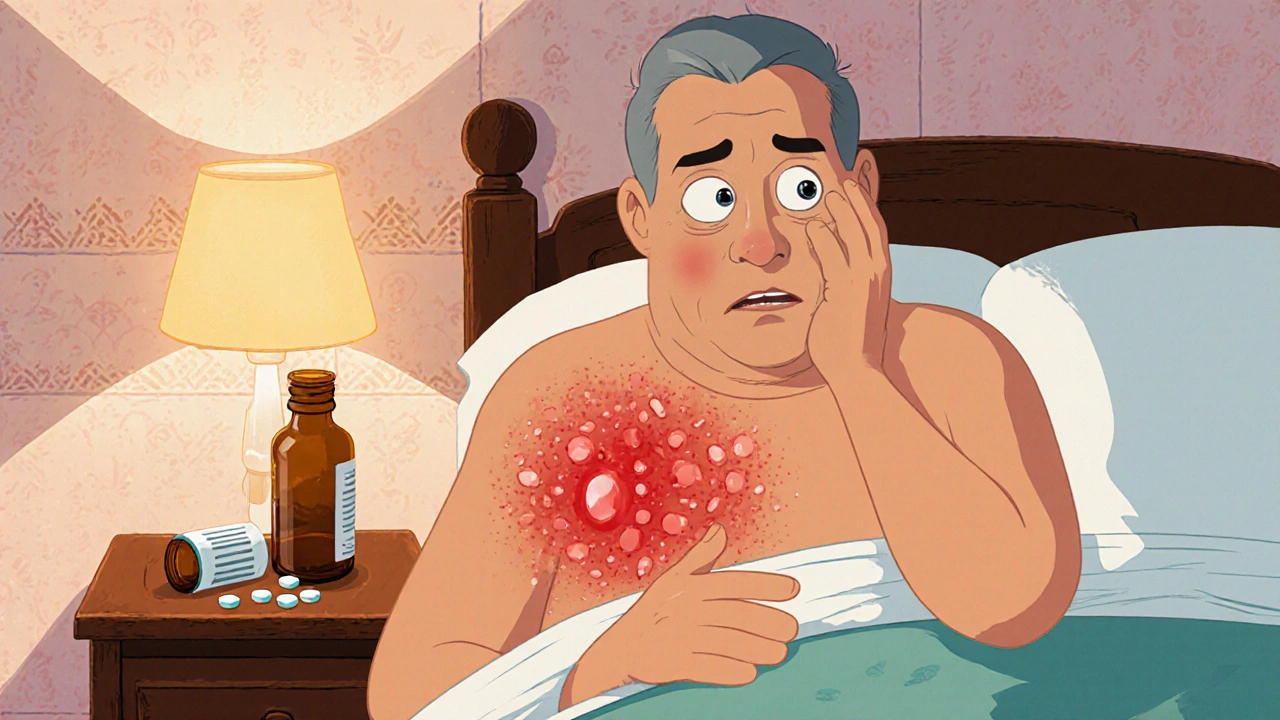Shingles: Causes, Symptoms, Treatment & Prevention
When dealing with Shingles, a painful rash caused by the reactivation of the varicella‑zoster virus, it helps to know the key players behind the disease. Also called herpes zoster, shingles is directly linked to Varicella Zoster Virus, the same virus that causes chickenpox in childhood. The virus can stay dormant in nerve tissue and flare up later in life, especially when immunity drops. The most effective way to stop that flare‑up is the Shingrix Vaccine, a non‑live, adjuvanted vaccine recommended for adults over 50. If the rash does appear, the biggest worry is Postherpetic Neuralgia, a lingering nerve pain that can last months or years after the skin heals.
Why does the virus reactivate? Age, stress, and weakened immune systems are the usual suspects. Once the skin erupts, you’ll notice a unilateral band of blisters, burning pain, and sometimes fever. Early treatment with antivirals—such as aciclovir, valacyclovir, or famciclovir—can shave days off the illness and lower the risk of nerve damage. Pain control often involves gabapentin, lidocaine patches, or even low‑dose opioids, depending on severity. Our article collection dives deep into these drug choices, comparing efficacy, side‑effects, and costs, so you can pick the right therapy without guessing.
What to Expect When Managing Shingles
Beyond meds, lifestyle tweaks matter. Keep the rash clean, avoid scratching, and stay hydrated. Nutrition that supports immunity—Vitamin C, zinc, and B‑complex—can speed recovery. If you’re eligible, the shingles vaccine is your best defense; two doses spaced two to six months apart give over 90% protection against severe disease. For those who already have an outbreak, our guides cover everything from home care to when to call a doctor, plus detailed side‑by‑side reviews of antiviral pills, pain relievers, and topical creams. Below you’ll find a curated set of posts that break down each medication, explain how they interact, and give you practical tips to manage side‑effects and costs. Grab the insights you need, then explore the full list of resources for a smoother, less painful recovery.
Aspirin for Shingles: Benefits, Risks, and What the Research Says
Explore whether aspirin can help relieve shingles pain, its risks, and how it fits into standard antiviral and vaccine strategies.
- Oct 18, 2025
- Connor Back
- 10

